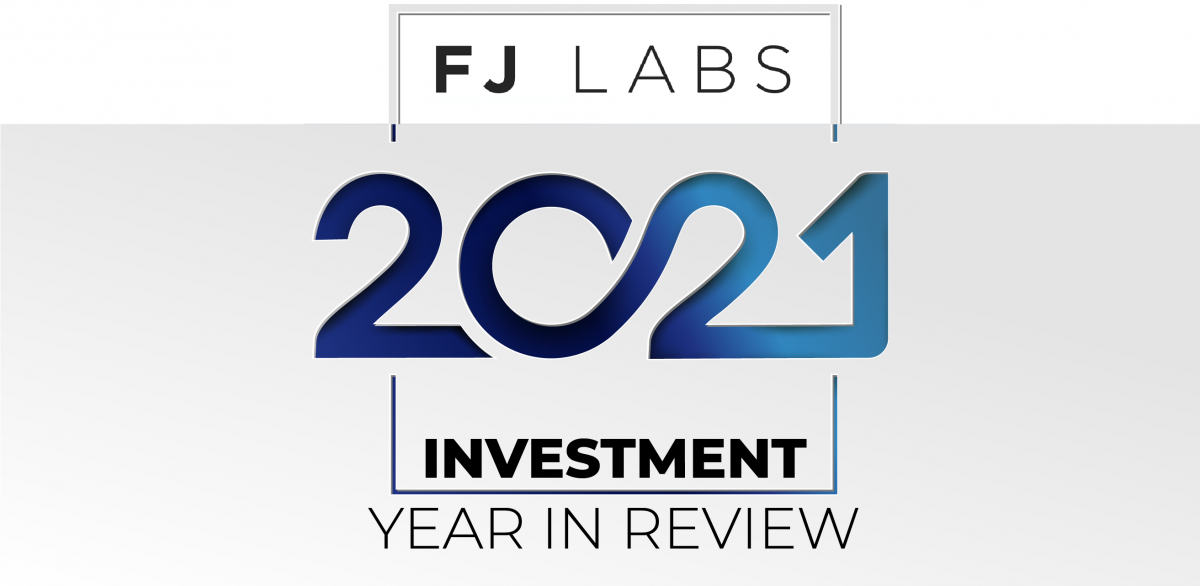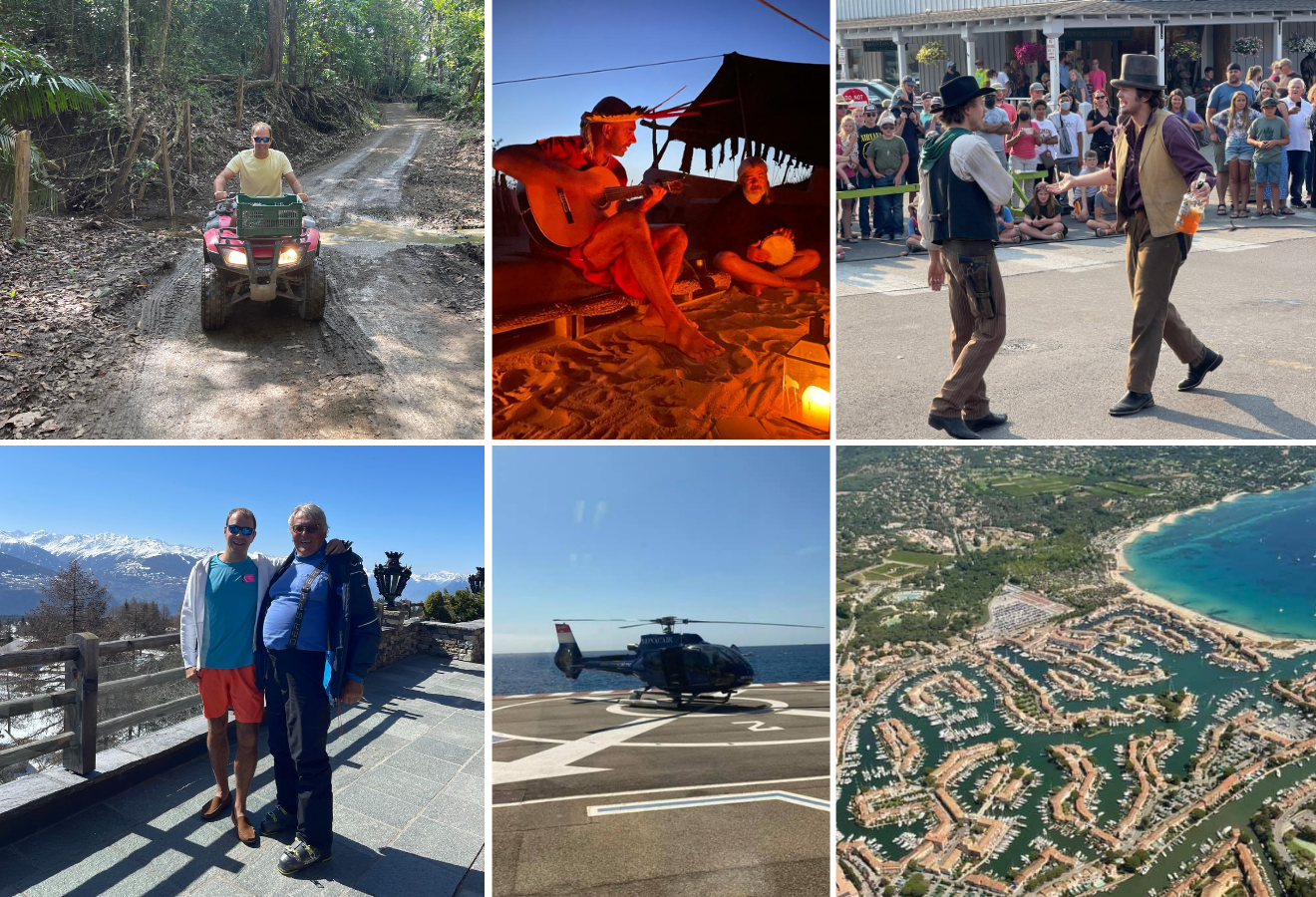In episode 27, I took a stab at which categories investors and entrepreneurs should focus on for the coming 5 years. In today’s episode, I wanted to cover the themes and trends that emerged in the last 12 months.
Ten trends clearly emerged as we saw them time and time again with a plethora of competitors in every geography. There was no unifying theme across all of them, but four of the trends cover startups that help SMBs and micro-entrepreneurs run their businesses better allowing their owners to focus on what they do best.
For your reference I am including the slides I used during this episode.
B2B FMCG Marketplaces
These marketplaces help bodegas and corner stores automate their operations and improve their sourcing, allowing the store owners to focus on what they do best. This falls squarely in FJ Labs’ thesis covered in episode 4 on B2B marketplaces and the future of work.
There are 50 million independent corner stores worldwide and a slew of marketplaces are helping them obtain better supply, better payment and delivery terms. We saw this emerge first in emerging markets with the likes of Jabu in Namibia, Alerzo in Nigeria and Chiper in Columbia and Mexico, but we are now seeing it in developed markets as well with companies like Vori in the US and Magaloop in Germany.
Superfast Ecommerce
The Internet has always been about better, cheaper, faster, and this trend is best illustrated by the emergence of 15-minute grocery delivery. These online grocers use hundreds of dark stores with typically 3,000 SKUs to be able to deliver in sub-15 minutes in major cities. This was first popularized by Getir in Turkey and Samokat in Russia but is now emerging everywhere.
After the food delivery, ride sharing and scooter wars, this is the new capital war with dozens of well capitalized players going after the space. New York has nearly 10 players jousting for dominance which makes it an amazing time to be a consumer. The user experience is delightful. I receive my orders on average in 8 minutes.
The economics of the business work at scale, however with so many players it’s going to be a bloodbath. We are already seeing consolidation with the shutting down of Fifteen Twenty and rumours of other players up for sale. That said, in the end a $100 billion player will likely emerge from the category.
Amazon 3P Seller Rollups
Amazon marketplace is huge with $300 billion in GMV in 2020 growing 50% per year and there are over 200,000 Amazon sellers earning over $500k per year. Thrasio took the category by storm. It started buying and rolling up independent 3rd party Amazon sellers at low EBITDA multiples (around 3x EBITDA) and bringing their marketing, operational and purchasing efficiencies to bear to improve their scale and profitability. They reached unicorn status in less than 2 years post their seed.
Since then, many others have replicated the model across many geographies and verticals.
Creator/Passion Economy
More and more people are realizing that they can monetize their passion with a small following of true fans. The category came of age with Twitch (video games), Patreon (artists), Cameo (birthday wishes) and Only Fans (porn). However, tools are now being created to help creators in every possible vertical: podcasting, audio content creation, newsletter writers, video course creators, virtual teaching and tutoring, and virtual coaches in every category, helping countless make a living pursuing their passion. There are so many players I did not list them here, but refer to slide 9 of my deck.
In addition, geographic specific equivalents are emerging of all these companies, and many are now harnessing Web3 for the creator economy.
SaaS-Enabled Marketplaces for SMBs
A vertical version of Shopify is seemingly emerging in every vertical to help store owners with their back office, point of sale, marketing, procurements etc. They typically monetize through a combination of payments and new demand brought by their marketplace.
Many companies have already scaled with this strategy reaching hundreds of millions of GMV or more such as Slice in the pizzeria space, Fresha for hairdressers, and Jobox for locksmiths.
Used Car Marketplaces
The pandemic and the supply shortage profoundly increased the willingness of consumers to purchase cars online. This primarily benefited Carvana in the US which saw its market share explode. As the stock multiplied by 15 since IPO, entrepreneurs and VCs everywhere tried to replicate that success with a few emerging leaders such as Cazoo in the UK, Kavak in Mexico, Clutch in Canada, and Spinny in India.
Online B2B car marketplaces also benefited with massive growth at ACV Auctions in the US and CarOnSale in Germany.
Accounting Software for Emerging Market Micro-SMBs
These startups help SMB founders to run their businesses from their cell phones offering free accounting and invoicing. This was pioneered by Khatabook in India which now has over 10 million monthly active merchants and $24 billion in monthly payment volumes. This was replicated in many other countries with companies like Treinta and BukuWarung also reaching meaningful scale.
Right now, none of them are monetizing, but you can imagine potential monetization though payments, factoring, insurance, catalogue and more.
Live Commerce Beyond China
In China, live video shopping makes up 20% of ecommerce with its unique blend of entertainment and shopping, mostly on the incumbent leading ecommerce platforms. Penetration is much lower in the West, but we are seeing a slew of companies attacking the space especially in three verticals: collectibles (Popshop Live, Whatnot, NTWRK), Make-up (Supergreat, Newness), and Fashion (The Lobby). It will be interesting to see if buying habits converge or if live video shopping remains a small percentage of commerce in the West.
Defi & NFTs
As I covered in episode 28, What’s the deal with crypto?, decentralized finance and NFTs both exploded in 2021 with tens of billions of dollars’ worth of transactions. Watch that episode for more details.
I am looking forward to observing the trends that emerge over the next 12 months!
If you prefer, you can listen to the episode in the embedded podcast player:
In addition to the above Youtube video and embedded podcast player, you can also listen to the podcast on:













